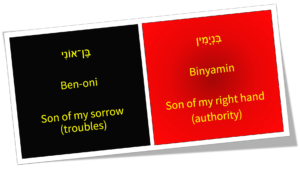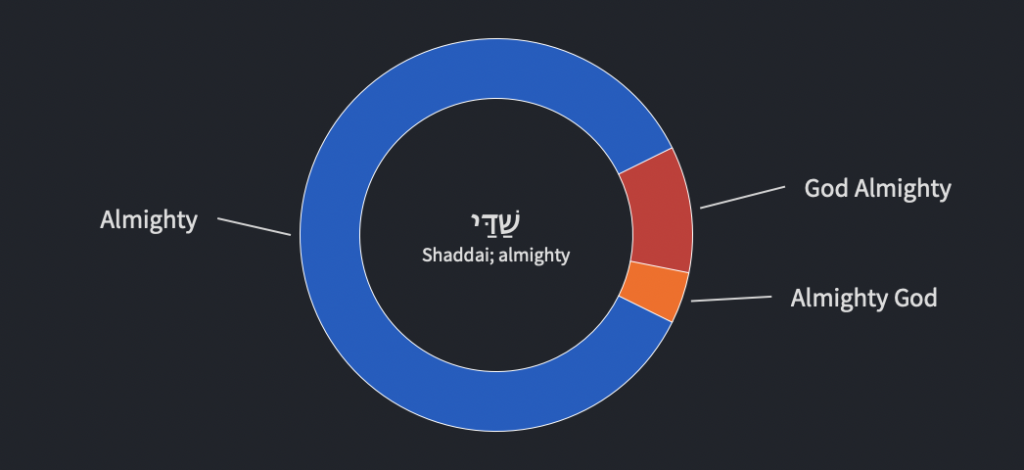31 verses recorded in Genesis 34 seems inapposite to the narrative of the Israelites as it involves rape, an offer of dowry, murder, and deceitfulness, but yet it is recorded by the inspiration of the Holy Spirit (2 Tim 3:16), to teach us some valuable lessons.
Jacob purchases a plot of land in the land of Shechem from Hamor (Genesis 33:19) and tarries in that land instead of going to the land that God had asked him to go (Genesis 31:13). Dinah, his daughter, chooses to go to mingle with the woman of the land, when Shechem, Hamor’s son lays eyes on her, seizes her and rapes (defiles) her. Unusually, after Dinah is defiled, Shechem falls in love with her and beseeches his father to ask for Dinah’s hand in marriage. The news of Dinah’s rape reaches Jacob when his sons are in the field tending to cattle. When Dinah’s brothers come and learn of Dinah’s defilement, they are wrought with anger. Hamor comes to Jacob and asks for Dinah to be given to his son Shechem as his wife and proposes that they intermarry the daughters of the Shechemites (pagans) and the Israelites, and share the land, and their possessions. Shechem, in exchange for Dinah, offers great dowry and gift, unto Jacob and his sons. The sons of Jacob, deceitfully respond to Shechem and Hamor, and suggest that if all the Shechemite males are circumcised, then they will allow Dinah to marry Shechem. They will also take Shechemite women as wives for the Israelites and the two shall become one people. They use circumcision as a sign of making the non-Israelites one of their own, instead of treating it to be the sign of the covenanted people of God, as was God’s edict to Abraham (Genesis 17:9-14). Fooled by the brother’s words, and with the avarice desire to assume the wealth and possessions of the Israelites for themselves, Shechem and Hamor reason with the Shechemite men in the city and convince them all to be circumcised. Three days after the Shechemite men are circumcised, when they are sore in pain, Simeon and Levi, two blood brothers of Dinah, take their swords and murder the men in Shechem, kill Hamor and his son Shechem, and take their sister back out of the house of Shechem. They then loot the city, plundering it, and taking the cattle (sheep, oxen, asses) that were in the city and the field, all the wealth and all the Shechemite children and wives as captives, acting much like the pagans instead of as God’s covenanted people. When Jacob hears of this, he expresses to Simeon and Levi that their action will not only jeopardize his life and the lives of his family but he will be deemed repulsive by the inhabitants of the land, to which his son’s reason and respond with a question “Should their sister have been treated like a prostitute?”
Some of the observations that we can glean from this pericope are:
- Jacob, who was rechristened as Israel (Genesis 32:28), is referred to as Jacob and not as Israel.
- While the word ‘defile’ appears four times in this chapter, not once is there a mention of God.
Some of the lessons that we can learn from this account are:
- Dinah’s going out to socialize among the women of the land, without the protection of her brothers or father, ends up costing her her honor and defilement.
- The anger of the sons of Jacob makes them vengeful, taking matters into their own hands, including using God’s covenant sign to deceive. While these series of unfortunate caused the defilement of Jacob’s daughter, Dinah, the eventual result of Jacob’s son’s action led to the distortion of God’s covenant sign.
- To offer to become one people and be unequally yoked with others (2 Corinthians 6:14) who are not in the faith is dangerous as it can lead us astray from God (Numbers 31:16).
- When we obey God and act according to his ways, our actions can make us a witness of the One True God, Yahweh, allowing for the access of the gospel of Jesus Christ to reach the people in the land or when we disobey and acts according to the patterns of the world, it can impede our witness and make us a repulsive odor in the noses of those who don’t know God.
The critical lesson we can learn is that all of these misfortunes for Jacob, his daughter, and his sons could have been avoided if only Jacob had not tarried in the land of Shechem. If Jacob had not delayed in obeying God and had traveled to Bethel where he was commanded to go by God, the defilement of Dinah, nor the murderous and plundering acts of his sons would not have happened.
Points to ponder:
The danger of delayed obedience is that it can put us and our families in harm’s way. When God asks us to do something, let us not wait, but let us immediately respond to doing what God wants us to, lest we jeopardize our lives and the lives of our loved ones (family) and become a repulsive (stink) amongst the inhabitants of this world that are still not God’s people. What is God asking you to do today? What are you waiting for?
Genesis 34:1-31 (KJV)
1And Dinah the daughter of Leah, which she bare unto Jacob, went out to see the daughters of the land.
2 And when Shechem the son of Hamor the Hivite, prince of the country, saw her, he took her, and lay with her, and defiled her.
3 And his soul clave unto Dinah the daughter of Jacob, and he loved the damsel, and spake kindly unto the damsel.
4 And Shechem spake unto his father Hamor, saying, Get me this damsel to wife.
5 And Jacob heard that he had defiled Dinah his daughter: now his sons were with his cattle in the field: and Jacob held his peace until they were come.
6 And Hamor the father of Shechem went out unto Jacob to commune with him.
7 And the sons of Jacob came out of the field when they heard it: and the men were grieved, and they were very wroth, because he had wrought folly in Israel in lying with Jacob’s daughter: which thing ought not to be done.
8 And Hamor communed with them, saying, The soul of my son Shechem longeth for your daughter: I pray you give her him to wife.
9 And make ye marriages with us, and give your daughters unto us, and take our daughters unto you.
10 And ye shall dwell with us: and the land shall be before you; dwell and trade ye therein, and get you possessions therein.
11 And Shechem said unto her father and unto her brethren, Let me find grace in your eyes, and what ye shall say unto me I will give.
12 Ask me never so much dowry and gift, and I will give according as ye shall say unto me: but give me the damsel to wife.
13 And the sons of Jacob answered Shechem and Hamor his father deceitfully, and said, because he had defiled Dinah their sister:
14 And they said unto them, We cannot do this thing, to give our sister to one that is uncircumcised; for that were a reproach unto us:
15 But in this will we consent unto you: If ye will be as we be, that every male of you be circumcised;
16 Then will we give our daughters unto you, and we will take your daughters to us, and we will dwell with you, and we will become one people.
17 But if ye will not hearken unto us, to be circumcised; then will we take our daughter, and we will be gone.
18 And their words pleased Hamor, and Shechem Hamor’s son.
19 And the young man deferred not to do the thing, because he had delight in Jacob’s daughter: and he was more honourable than all the house of his father.
20 And Hamor and Shechem his son came unto the gate of their city, and communed with the men of their city, saying,
21 These men are peaceable with us; therefore let them dwell in the land, and trade therein; for the land, behold, it is large enough for them; let us take their daughters to us for wives, and let us give them our daughters.
22 Only herein will the men consent unto us for to dwell with us, to be one people, if every male among us be circumcised, as they are circumcised.
23 Shall not their cattle and their substance and every beast of their’s be our’s? only let us consent unto them, and they will dwell with us.
24 And unto Hamor and unto Shechem his son hearkened all that went out of the gate of his city; and every male was circumcised, all that went out of the gate of his city.
25 And it came to pass on the third day, when they were sore, that two of the sons of Jacob, Simeon and Levi, Dinah’s brethren, took each man his sword, and came upon the city boldly, and slew all the males.
26 And they slew Hamor and Shechem his son with the edge of the sword, and took Dinah out of Shechem’s house, and went out.
27 The sons of Jacob came upon the slain, and spoiled the city, because they had defiled their sister.
28 They took their sheep, and their oxen, and their asses, and that which was in the city, and that which was in the field,
29 And all their wealth, and all their little ones, and their wives took they captive, and spoiled even all that was in the house.
30 And Jacob said to Simeon and Levi, Ye have troubled me to make me to stink among the inhabitants of the land, among the Canaanites and the Perizzites: and I being few in number, they shall gather themselves together against me, and slay me; and I shall be destroyed, I and my house.
31 And they said, Should he deal with our sister as with an harlot?




 God blesses Jacob, renames him as Israel and upon revealing Himself as God Almighty, God gives the command to Jacob to be fruitful and multiply and promises him that nations and kings shall come from his loins (Genesis 35:11). God then promises to give to Jacob and to his seed after him, the land and seed that he had given to Abraham and Isaac (Genesis 35:12). After God had spoken with him, God ascended from where he was (Genesis 35:13).
God blesses Jacob, renames him as Israel and upon revealing Himself as God Almighty, God gives the command to Jacob to be fruitful and multiply and promises him that nations and kings shall come from his loins (Genesis 35:11). God then promises to give to Jacob and to his seed after him, the land and seed that he had given to Abraham and Isaac (Genesis 35:12). After God had spoken with him, God ascended from where he was (Genesis 35:13). Juxtaposing Jacob’s renaming, the second time, in Bethel (Genesis 35:10), God reveals a name by which Jacob is to know him by. God identifies himself as God Almighty which in Hebrew is El Shaddai (Genesis 35:11).
Juxtaposing Jacob’s renaming, the second time, in Bethel (Genesis 35:10), God reveals a name by which Jacob is to know him by. God identifies himself as God Almighty which in Hebrew is El Shaddai (Genesis 35:11).